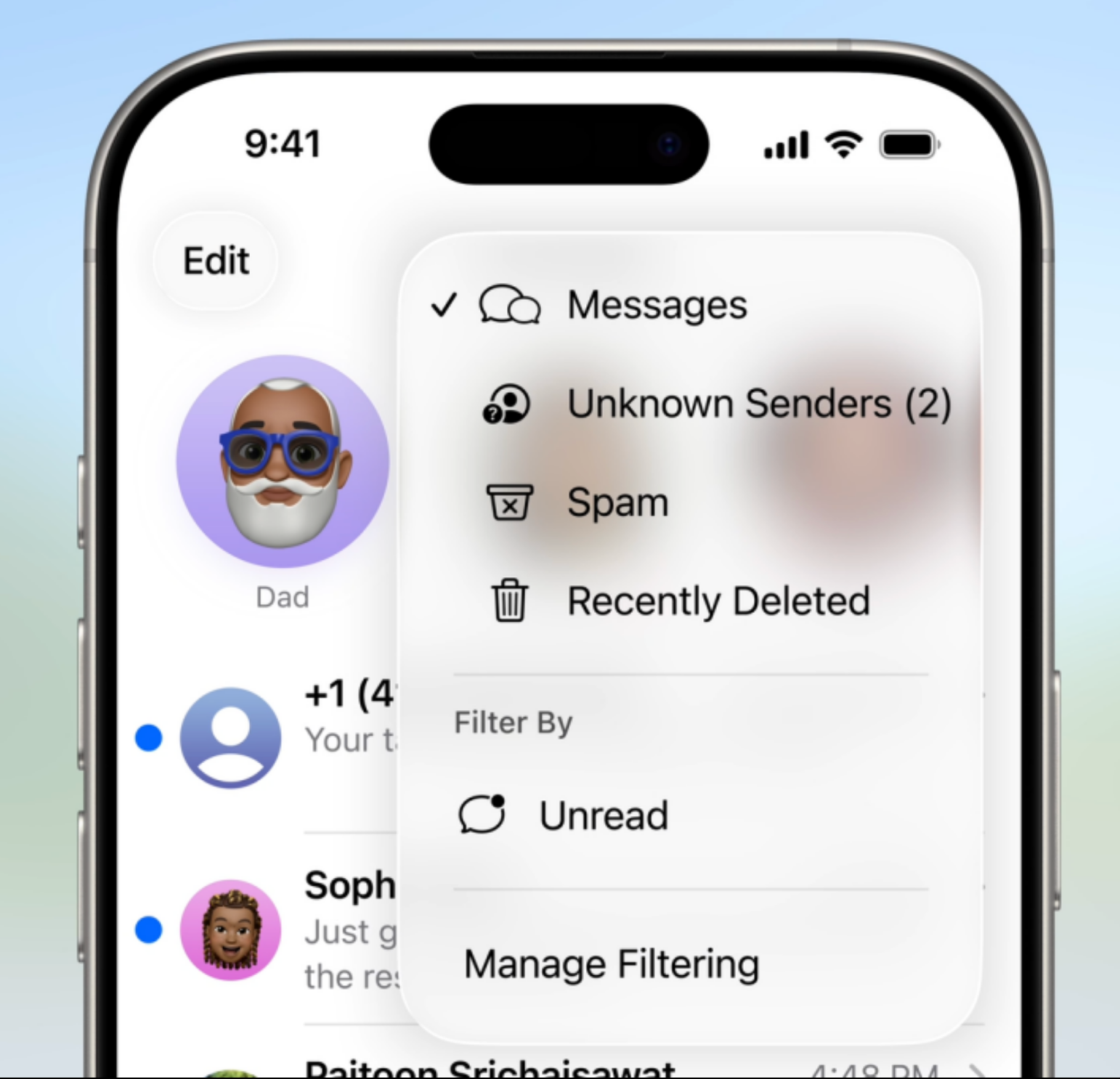The iOS 26 Update Is Quietly Killing Your Marketing Messages — Here’s How to Survive It
Apple’s newest update, iOS 26, dropped with the usual fanfare about AI, design polish, and “privacy-first experiences.”
But buried underneath all that Liquid Glass eye candy is a change that’s making marketers sweat: the new spam and message classification system inside the Messages app.
And it’s brutal if you’re not ready for it.
The Big Shift: Apple’s New Message Filters
In iOS 26, Apple quietly upgraded its message filtering. Users now see four tabs inside Messages:
Primary – conversations from saved contacts
Unknown Senders – anyone not in the address book
Spam – anything Apple or the carrier’s on-device AI thinks might be unsolicited
Recently Deleted
That third one — Spam — is the marketer’s new nightmare.
If your number isn’t saved, or if your message sounds remotely “promotional,” you can land in that folder automatically. The user never sees a notification, and they can’t even click your links unless they manually move you back to the inbox.
Translation: you can spend money on a flawless campaign that no human ever reads.
Why Apple’s Doing This
Apple isn’t targeting small businesses — they’re protecting users from the tidal wave of scam texts hitting phones daily.
They’re using on-device machine learning to classify messages in real time, and they’re pretty good at it.
Unfortunately, the algorithm doesn’t know the difference between:
“Your parcel is waiting for pickup”
and
“Your free strategy session is waiting for you.”
Both can look the same to a filter that only sees URLs, timing, and sender reputation.
What It Means for Marketers
If you send broadcast SMS from an unrecognized number — even legitimate, permission-based marketing — your messages could be quietly buried.
Expect:
- Lower open rates (notifications are disabled in Spam/Unknown folders)
- More opt-outs (people will see your messages in bulk later and rage-delete)
- Reduced trust (when you finally message them again, it’ll feel “cold”)
The Fix: How to Stay in the Inbox
Here’s what’s working right now for marketers who’ve tested on iOS 26:
1. Get Into the Address Book
The single biggest deliverability boost is being a saved contact.
Tell subscribers to save your number right up front — with a reason.
Example:
“Hey, it’s Jason from Automation Made Easy. Save this number so you don’t miss your Follow Up Formula steps.”
Make it easy with a downloadable vCard or clear “Add Contact” instructions on your thank-you page and first email.
2. Be Conversational, Not Corporate
Apple’s filters look at tone, not just content. Robotic, mass-send language screams “marketing.”
Talk like a human texting a mate:
“Hey Sam — quick heads-up, our webinar starts at 7 pm Sydney time. Want the calendar link?”
Short, friendly, and one idea per message wins.
3. Use a Recognizable Number
Avoid rotating or shared short codes. A dedicated long code (one number that only your brand uses) builds reputation.
The more people reply, the safer your number becomes in Apple’s eyes.
4. Deliver Real Value in Message #1
The first text should give, not ask.
Send something genuinely useful — checklist, guide, booking confirmation — before you ever pitch. That early “trust credit” helps algorithms see your number as safe.
5. Stay Compliant and Transparent
Include a simple opt-out line (“Reply STOP to opt out”).
Don’t blast cold numbers. Apple’s spam filter loves permission-based traffic.
The Takeaway
Apple’s iOS 26 is a privacy powerhouse — great for consumers, tricky for marketers.
But if you adapt now — by going permission-based, human, and saved-contact first — you’ll actually build deeper engagement while everyone else wonders why their messages stopped working.
Final Thought
The message game just changed — again.
If you’re still treating SMS like a mini email campaign, you’ll vanish into Apple’s spam abyss.
But if you treat it like a real conversation, with real humans, you’ll stand out like a voice in a sea of silence.

